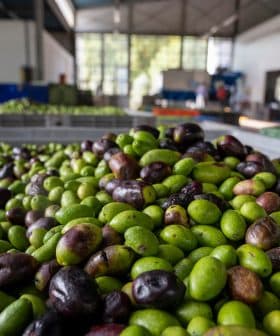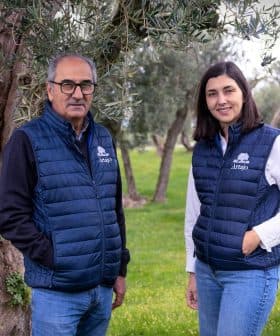EPA Plans to Tackle Food Waste in Effort to Reduce Carbon Emissions
The EPA is prioritizing food waste reduction as part of President Biden’s efforts to decrease greenhouse gas emissions, following a report from UNEP that stated food waste is responsible for 8 – 10% of global emissions. The EPA plans to invest in anaerobic digestion and publish reports on food waste to support a goal of reducing global food waste by 50% before 2030, aligning with international sustainable development targets.
The Environmental Protection Agency (EPA) will make food waste reduction a key component of President Joe Biden’s efforts to reduce greenhouse gas emissions.
The agency’s announcement comes three months after the United Nations Environmental Program (UNEP) reported food waste is responsible for between eight and 10 percent of global greenhouse gas emissions.
By aligning our goal with the (U.N.‘s) sustainable development goal target, the U.S. would be encouraging actions and investment in the prevention of food waste.
UNEP set out ways of collecting and analyzing data to better understand the full extent of the issue and proposed measures to tackle food waste in its report on the subject.
Ultimately, UNEP wants to reduce food waste globally by 50 percent before 2030 – a sustainable development goal target of the supranational organization.
See Also:Climate Change Is Altering the Nutrient Profiles of the World’s Crops“By aligning our goal with the international sustainable development goal target, the U.S. would be encouraging actions and investment in the prevention of food waste and keeping food in the human supply chain, instead of just focusing on diverting it from landfills and incinerators,” Claudia Fabiano, an environmental protection specialist at the EPA, told a recent conference in New York.
“This would really drive more significant reductions in greenhouse gas emissions,” she added.
According to Fabiano, the EPA has invested $3 million (€2.5 million) into anaerobic digestion – a natural process in which microorganisms break down organic matter – and plans to invest a further $2 million (€1.7 million) by next year.
However, she added that “composting and anaerobic digestion should be encouraged for unpreventable food scraps; we want to focus on the prevention aspects of it.”
To that end, the EPA will publish a series of reports this summer summarizing the latest scientific findings on food waste.
“This should help build the scientific basis for policymaking and private sector investments,” Fabiano said, adding that the EPA plans to build on a food waste action plan proposed by four organizations to the Biden administration and the U.S. Congress back in April.
The plan, which was co-authored by researchers from Harvard University, the Natural Resources Defense Council, ReFED and the World Wildlife Fund, said that up to 40 percent of food produced in the U.S. is wasted, costing the economy an estimated $408 billion (€344 billion) each year.
The creators of the action plan appealed to Congress and the Biden administration to provide more funding for local governments to create organic waste recycling infrastructure, continue to research the issue and implement behavior change campaigns.
“I think we’re also really hopeful that we [the EPA] will be able to work on some of the important priorities that have been laid out in the food waste action plan that we’ve been talking about today,” Fabiano concluded.









